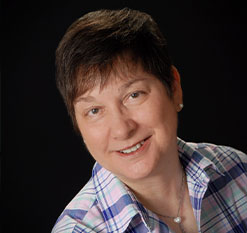PLANNED
GIVING
Making a planned gift is a wonderful way to show your support and appreciation for George Mason University and its mission while accommodating your own personal, financial, estate-planning, and philanthropic goals.
Making a planned gift is a wonderful way to show your support and appreciation for George Mason University and its mission while accommodating your own personal, financial, estate-planning, and philanthropic goals.
 By Anne Reynolds
By Anne Reynolds
Deborah Boehm-Davis's work exemplifies research of consequence. This University Professor Emeritus of George Mason University's Department of Psychology and former dean of the College of Humanities and Social Sciences has served industry, academia, and government during her career, and along the way has made major contributions to understanding human interactions with technology.
Boehm-Davis describes her career philosophy in terms of that interaction: "I have always wanted to identify how the design of the tools we use, or the environments in which we work, can be modified to help us accomplish everyday tasks." She has done this work in applications that include how people interact with their computers, in-vehicle navigation devices, medical devices, and how pilots interact in the cockpit. She has also been concerned with how interruptions while we are doing tasks reduce the quality of what we produce.
Boehm-Davis has recently retired from Reality Labs Research at Meta (formerly Oculus Research and Facebook Reality Labs Research), where she managed research on human interactions with virtual and augmented reality systems. But colleagues in CHSS recall her many contributions to Mason.
Boehm-Davis joined the University in 1984, coming to the Department of Psychology with experience from AT&T Bell Laboratories, the NASA Ames Research Center, and General Electric. At Mason, her administrative contributions were extensive: she served as the assistant dean of Mason's graduate school, in the provost's office as the vice provost for research and graduate studies, and in CHSS as the psychology department chair, the associate dean, and as dean of the college. Throughout, she continued her research, teaching, and student mentoring.
Boehm-Davis's student support, however, extends beyond the academic and administrative. Since 2010 she and her husband Stuart Davis have been championing Mason's students through a lasting contribution that augments her considerable educational leadership—they have established and grown the Boehm-Davis Endowment for Student Success, a fund to support the psychology department's diversity goals.
"Whenever you work for a company or an institution that's close to your heart, you want to find ways to support it, and George Mason was my life for a very long time," she said. "It was a good home for me. It helped me grow professionally in lots of different ways, both as a faculty member and as an administrator. [Psychology] was a good department. People supported one another, and I always felt supported by the University."
She recognizes the great promise of education and was motivated to support students striving to attain their degrees. "My parents were both first-generation students," she explained. "My father went to college on the G.I. Bill, and my mother worked all day and went to school at night. When I grew up, it wasn't a question of if I went to college; they would talk about 'when you get your graduate fellowship.'"
Boehm-Davis was motivated to help Mason's students find the same opportunities. "I'm not sure that I understood at the time I was a student how much of a sacrifice that was for my parents. But I certainly came to appreciate it over the years.
"It's daunting for so many people," she continued. "So, if I can help, that was close to my heart, to do something to help people get an education."
The fund supports the diversity goals of the psychology program through direct scholarship or fellowship awards to students pursuing a degree in psychology or through student programs within the department. Boehm-Davis recalls her own undergraduate education as fuel for fostering diversity. "I went to Douglass College—the women's college associated with Rutgers University—because Rutgers College was still all male." Rutgers College became coeducational in 1972, after Boehm-Davis enrolled.
"This fund has helped the department to provide fellowships and research support to graduate students, making them more able to progress in their training and conduct high-impact research," said Keith Renshaw, professor and chair, Department of Psychology. "It has also sparked additional giving from others, growing our ability to support our students."
Boehm-Davis is pleased that the endowment will be able to help Mason students into the future. "What appeals to us is that the money is going to be there forever, in perpetuity," she said. "It just makes you feel really good about that fact that you're doing something important."
This article was originally published in the CHSS Annual Report 2021-22.
© Pentera, Inc. Planned giving content. All rights reserved.
Disclaimer